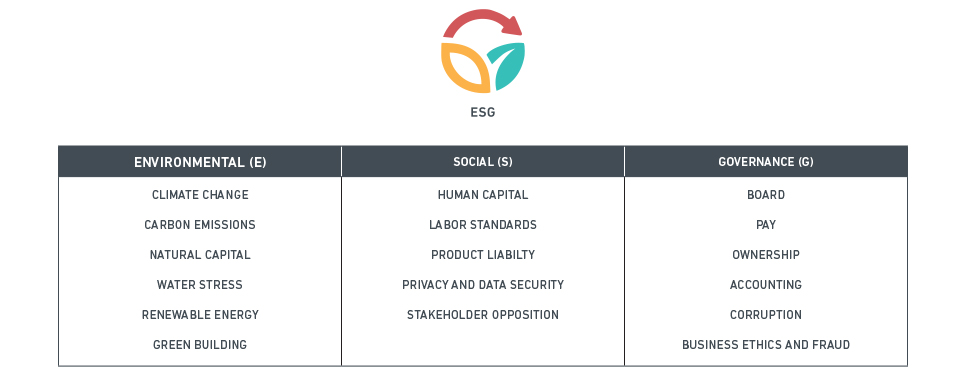ESG Investing is a term that is often used synonymously with sustainable investing, socially responsible investing, mission-related investing, or screening. At MSCI ESG Research we define it as the consideration of environmental, social and governance factors alongside financial factors in the investment decision-making process.

A common debate with ESG investing revolves around the idea that incorporating ESG factors into the investment process will hurt performance. However, some studies suggest that companies with robust ESG practices displayed a lower cost of capital, lower volatility, and fewer instances of bribery, corruption and fraud over certain time periods.
Conversely, studies have shown that companies that performed poorly on ESG have had a higher cost of capital, higher volatility due to controversies and other incidences such as spills, labor strikes and fraud, and accounting and other governance irregularities. 7
It may come as no surprise then that numerous academic and investor studies (see below) in recent years have found historically lower risk and even outperformance over the medium to long term for portfolios that integrated key ESG factors alongside rigorous financial analysis.
Does ESG add value? Read the studies: